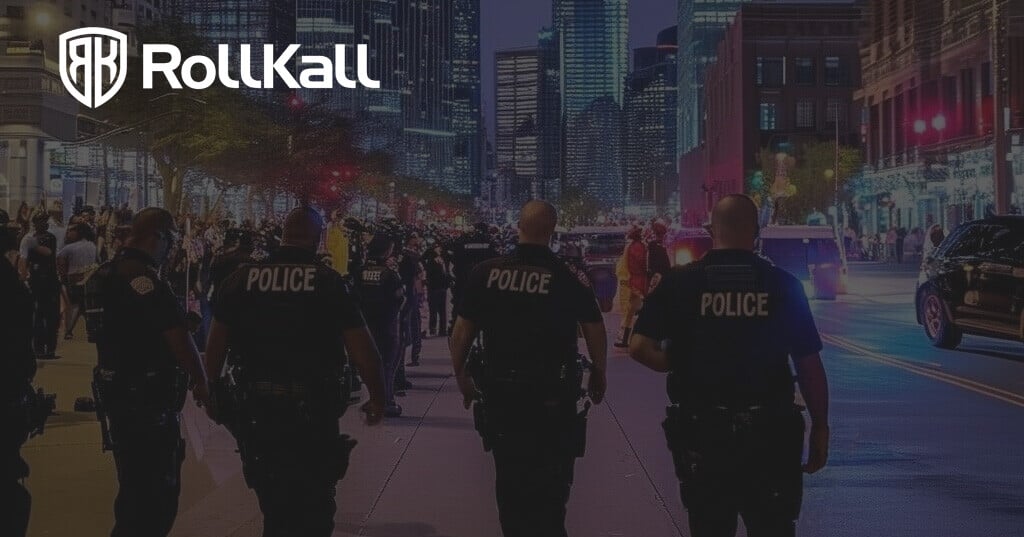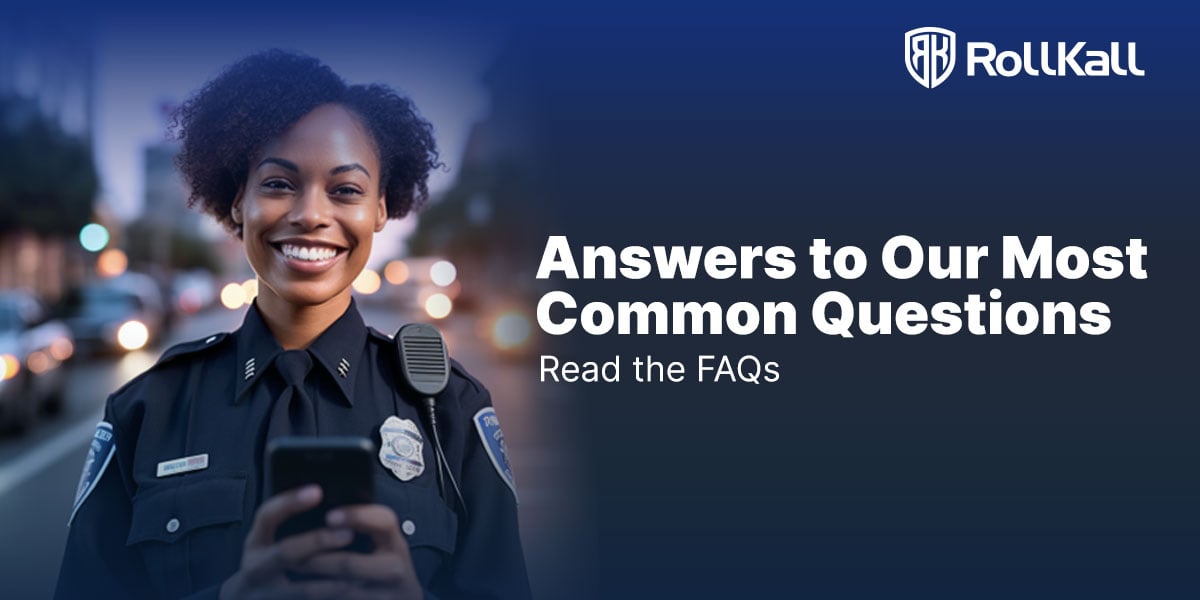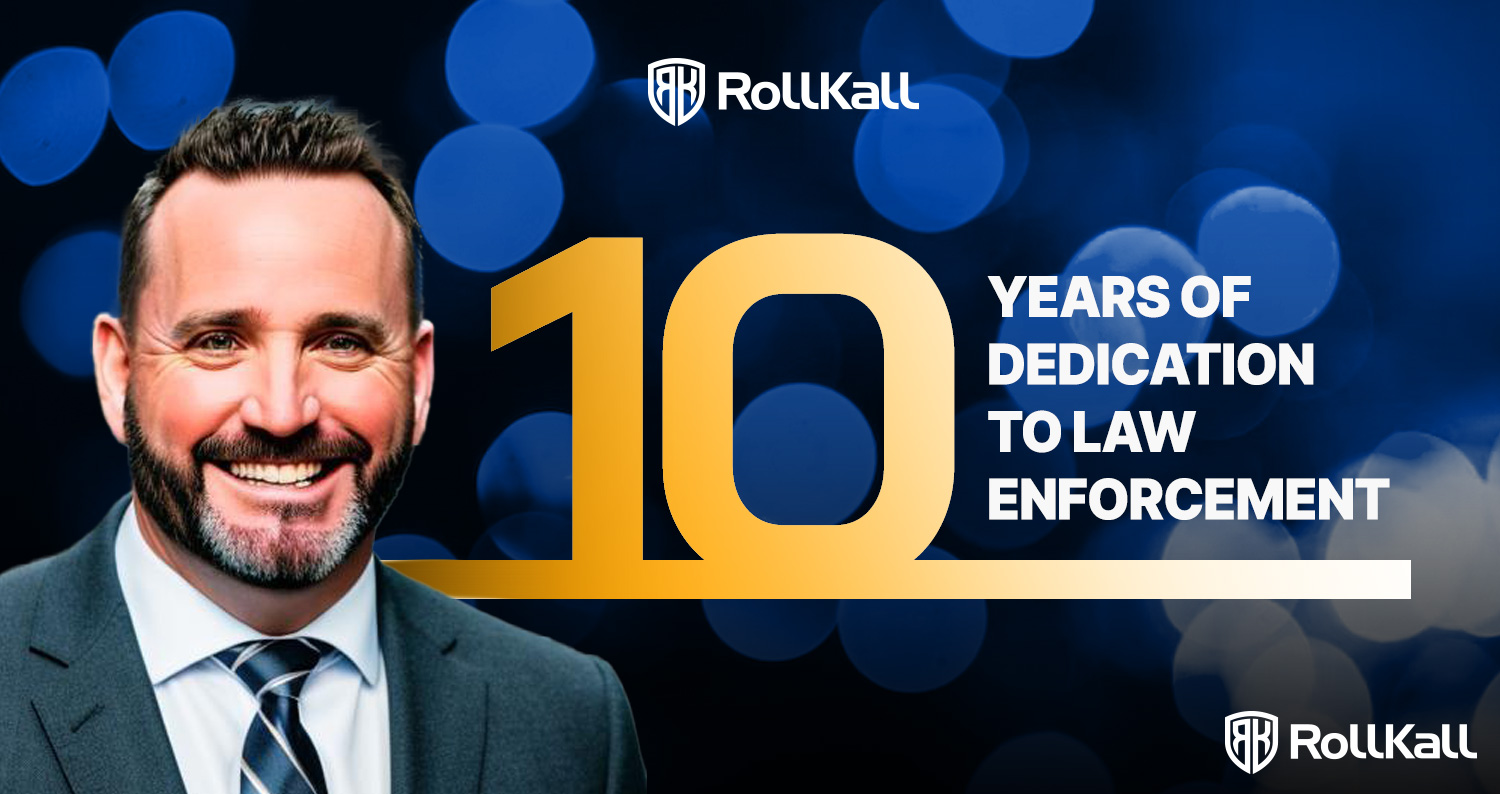Download the free guide
Aenean eu leo quam. Pellentesque ornare sem lacinia quam venenatis.
Law enforcement departments are as unique as the officers who make up their forces, but just about every department across the US employs officers who work to protect the community outside of their regularly scheduled hours.
Your department may call it secondary employment, extra details, off duty hours, or you may not even have a phrase for it at all. However your department handles it, every Chief of Police or Sheriff must make secondary employment a priority.
With the day-to-day of running an entire department, being the leader of a law enforcement agency is a hectic job. It’s the nature of the job to work long hours, deal with high-stress situations, and feel overwhelmed. Nobody wants to hear about more work that they need to take care of, but prioritizing a secondary employment policy for your officers will not only lighten your load but keep your community safer.
CALEA Compliance
The Commision on Accreditation for Law Enforcement Agencies (CALEA) has explicitly detailed their standards for how to manage your secondary employment program.
Fail to adhere to these standards, and your department is liable to lose its accreditation as a gold standard in safety. These standards were created by the International Association of Chiefs of Police, the National Organization of Black Law Enforcement Executives, the National Sheriffs’ Association, and the Police Executive Research Forum to help departments better manage off-duty jobs.
Ensuring that your officers aren’t working too many hours, are safe, and are working an approved shift aren’t necessarily difficult things to do, but they often get pushed aside. Departments typically only fall into dangerous territory when they become overwhelmed, or simply don’t have the time to devote to a secondary employment program.
Ensure you’re fully aware of all of the CALEA standards so you can keep your department in order. Automating some of these processes can save you and your department hours each week.
Department Compliance
There’s a good chance that your department already has a policy in place regulating off-duty work (if you don’t, consider adding one). It’s critical to enforce these guidelines department-wide.
Having a reliable system in place not only holds your department accountable but also allows you to better serve your community. It all starts at the top, so a Chief or Sheriff who might never work a single off duty hour, must still be fully aware of, and enforce his or her department’s policy.
While an officer who seems to always be on the job might look like a hero, he’s probably exhausted, and he’s definitely not adhering to the policies in place meant to protect both the community and him.
Extra red tape and bureaucracy are enough to make anyone want to pull their hair out. That’s why RollKall makes it easy to submit your department’s specific policies.
Are your officers only allowed to work a certain number of off duty hours per week? Limit those hours directly within RollKall, and it’ll automatically enforce these rules when your officer requests to work an off-duty job. Set your guidelines once and watch RollKall do the rest.
Safer Communities
Having a greater police presence leads to a safer community, but there’s only so much you can do with your force. Officers can only work so many hours and can only be in one place at once.
Hiring more officers takes time and resources that most departments don’t have readily available. A majority of citizens polled agreed that they would be in favor of raising state budgets to allow for more police officers in their community.
In a study published by Princeton University, researchers found that over the last 15 years, a more robust police force has, by and large, greatly reduced crime throughout the country. Unsurprisingly, in years with record-high numbers of officers, crime plummets well below the average. Communities don’t just feel safer when there are more police officers working, but they truly are safer.
Every Chief or Sheriff in every department would jump at the opportunity to add more officers to their community with the push of a button. Who wouldn’t?
Lucky for you, it’s not a pipe dream anymore. Departments and communities that use RollKall receive a force-multiplying effect. If there aren’t enough officers available from your particular department, you have the ability to use RollKall to open the listing up to officers in neighboring towns. With over 13,000 officers nationwide, there will always be someone standing by ready to serve your community.
Safer Officers
Everyone bends the rules. Maybe you take an extra-long lunch, or maybe you don’t come to a complete stop at that stop sign at 2 a.m., we all do it sometimes.
Police officers, on the other hand, usually bend the rules to help serve their community. They work extra hours, pick up a shift for a buddy, or just simply never go home. They know they’re not technically supposed to, and it seems to do much more help than harm.
The reality is that allowing your officers to overwork themselves is detrimental to them, the community, and your department. As Chief of Police, it is your responsibility to ensure proper safety guidelines are not only in place but enforced.
The effects of an overworked force are alarming. Officers who exceed a safe number of hours each week put themselves at risk of fatigue. The number of “safe hours” varies from one department to the next, but typically stays close to 40 hours a week of on-duty hours, and around 25 to 30 hours a week of off duty hours.
It’s important to note that every officer and every department is different. Just because you’re allowed to stretch yourself to work 90 hours a week, doesn’t mean you have to, and it certainly doesn’t mean that your officers won’t succumb to fatigue. Fatigued officers are less alert, more irritable, and unsafe.
Stress and extreme exhaustion tend to result in a greater number of mistakes in routine situations. Things like traffic stops become dangerous when your officers can hardly keep their eyes open.
Managing a department’s schedule is a gigantic task. Even just filling shifts and tracking on-duty hours can take a tremendous amount of time. That doesn’t include the oversight required to effectively manage an off duty program.
Most of the time, when an officer is working too much, they’re working a combination of on duty and off duty hours, and keeping them straight can be a mess. Being organized and having a system in place to rely on is the surest way to keep your department in order.
Take charge of your secondary employment
Effectively managing secondary employment is just one of the hundreds of tasks that a Chief of Police or Sheriff needs to worry about. Though it might seem like a tedious job, it’s certainly just as important, and failing to address it can mean the difference between a successful department and an unsuccessful one.
Take charge of your secondary employment and bring order to your department with RollKall. Automate officer scheduling, and seamlessly adhere to department, state, and federal guidelines with the push of a button.
Get the latest content delivered straight to your inbox!
Related Posts


Want more information about RollKall? Let us know a bit about you, and we’ll get back to you as soon as possible with more information and next steps!











